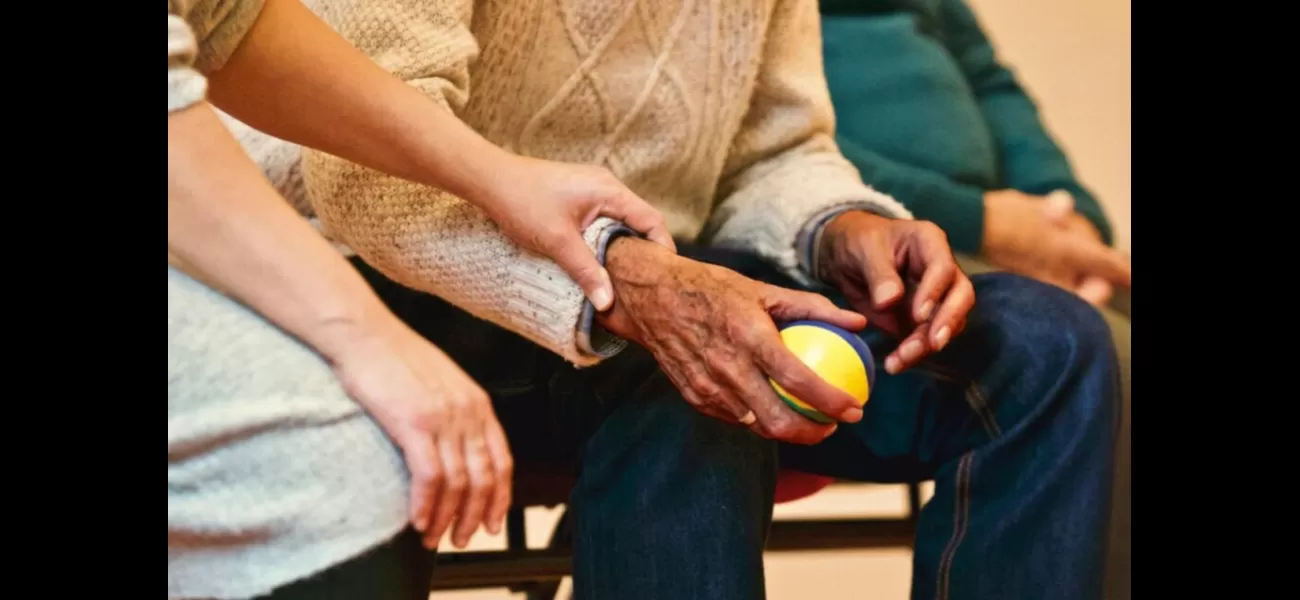Black individuals not receiving proper diagnosis and treatment for Parkinson's Disease.
Parkinson's is more commonly diagnosed in white Americans and at an earlier stage than in black people.
August 6th 2024.

Did you know that black people are often not diagnosed with Parkinson's disease, and even when they are, they may not receive the proper treatment? It's a concerning issue that has caught the attention of many healthcare professionals. In fact, in March of 2024, four hospital systems were chosen to take part in an expansion of the Black and African American Connections to Parkinson's Disease program. This program aims to address the underdiagnosis of black individuals with Parkinson's and emphasizes the importance of recruiting more black participants into early treatment programs.
According to NBC News, David Leventhal, the program director of Dance with PD at the Mark Morris Dance Group, one of the largest exercise programs in the United States, noticed the lack of black participants in the program. He stated, "We're always asking who's not in the room and why are they not in the room? In Parkinson's, movement is medicine. So, if you're not figuring out how to engage communities in movement, it's basically like withholding medication. If this were a pill, there would be an uproar."
Research has shown that exercise can slow the progression of Parkinson's in its early stages by stimulating neurons in the brain to produce dopamine. This has led to the belief that exercise could be a game-changer in treating Parkinson's. However, black people are less likely to be diagnosed with the disease, and when they are, it's often at a later stage than white Americans.
Dr. Camilla Kilbane, a medical doctor and director of the Parkinson's and Movement Disorder Center, as well as the medical director of the Deep Brain Stimulation Program and program director of Movement Disorders for the University Hospitals Institute, explained that most previous Parkinson's research has focused on white populations, with men being overrepresented. This bias in data collection has led to the belief that black people have a lower risk of developing Parkinson's, but this may not be true. The reality is that the black community is often underdiagnosed or diagnosed later in the disease's progression.
To address this issue, the Parkinson's Foundation announced in 2023 that Morehouse's School of Medicine would become the first historically black college and university (HBCU) to be a research site for the PD GENEration initiative. This global genetics initiative aims to fill a critical need in the Parkinson's community. Amasi Kumeh, the director of research partnerships at the Parkinson's Foundation, stated, "PD GENEration has established a strong relationship with the community through engagement and programs. We have become a gateway to research, helping recruit diverse participants for clinical trials and providing information about the process."
It's evident that more needs to be done to address the underdiagnosis of black individuals with Parkinson's. The PD GENEration initiative is a step in the right direction, but there is still a long way to go. As research continues and more efforts are made to include diverse populations, we can hope for a future where everyone, regardless of race, receives timely and proper diagnosis and treatment for Parkinson's disease.
According to NBC News, David Leventhal, the program director of Dance with PD at the Mark Morris Dance Group, one of the largest exercise programs in the United States, noticed the lack of black participants in the program. He stated, "We're always asking who's not in the room and why are they not in the room? In Parkinson's, movement is medicine. So, if you're not figuring out how to engage communities in movement, it's basically like withholding medication. If this were a pill, there would be an uproar."
Research has shown that exercise can slow the progression of Parkinson's in its early stages by stimulating neurons in the brain to produce dopamine. This has led to the belief that exercise could be a game-changer in treating Parkinson's. However, black people are less likely to be diagnosed with the disease, and when they are, it's often at a later stage than white Americans.
Dr. Camilla Kilbane, a medical doctor and director of the Parkinson's and Movement Disorder Center, as well as the medical director of the Deep Brain Stimulation Program and program director of Movement Disorders for the University Hospitals Institute, explained that most previous Parkinson's research has focused on white populations, with men being overrepresented. This bias in data collection has led to the belief that black people have a lower risk of developing Parkinson's, but this may not be true. The reality is that the black community is often underdiagnosed or diagnosed later in the disease's progression.
To address this issue, the Parkinson's Foundation announced in 2023 that Morehouse's School of Medicine would become the first historically black college and university (HBCU) to be a research site for the PD GENEration initiative. This global genetics initiative aims to fill a critical need in the Parkinson's community. Amasi Kumeh, the director of research partnerships at the Parkinson's Foundation, stated, "PD GENEration has established a strong relationship with the community through engagement and programs. We have become a gateway to research, helping recruit diverse participants for clinical trials and providing information about the process."
It's evident that more needs to be done to address the underdiagnosis of black individuals with Parkinson's. The PD GENEration initiative is a step in the right direction, but there is still a long way to go. As research continues and more efforts are made to include diverse populations, we can hope for a future where everyone, regardless of race, receives timely and proper diagnosis and treatment for Parkinson's disease.
[This article has been trending online recently and has been generated with AI. Your feed is customized.]
[Generative AI is experimental.]
0
0
Submit Comment





